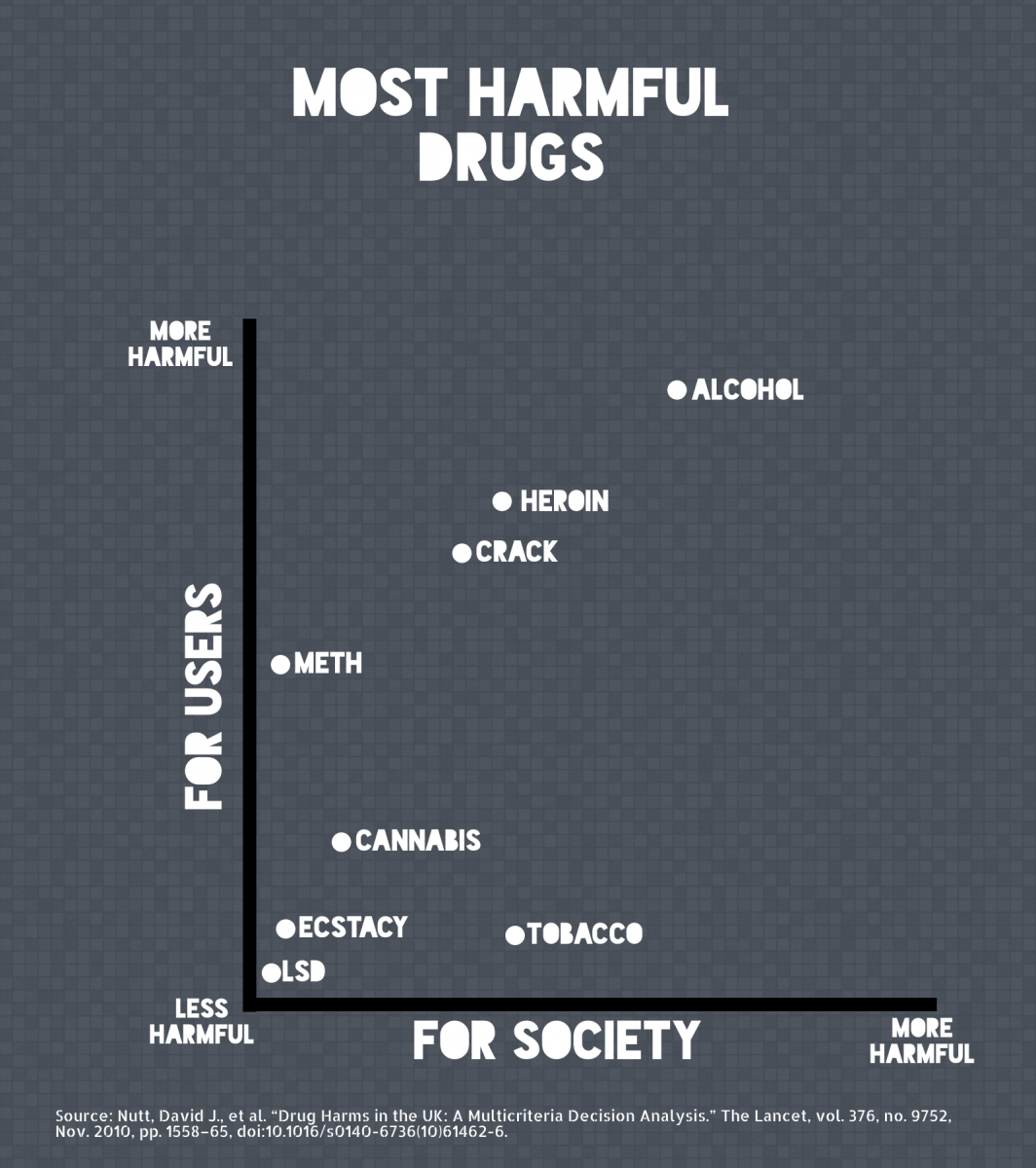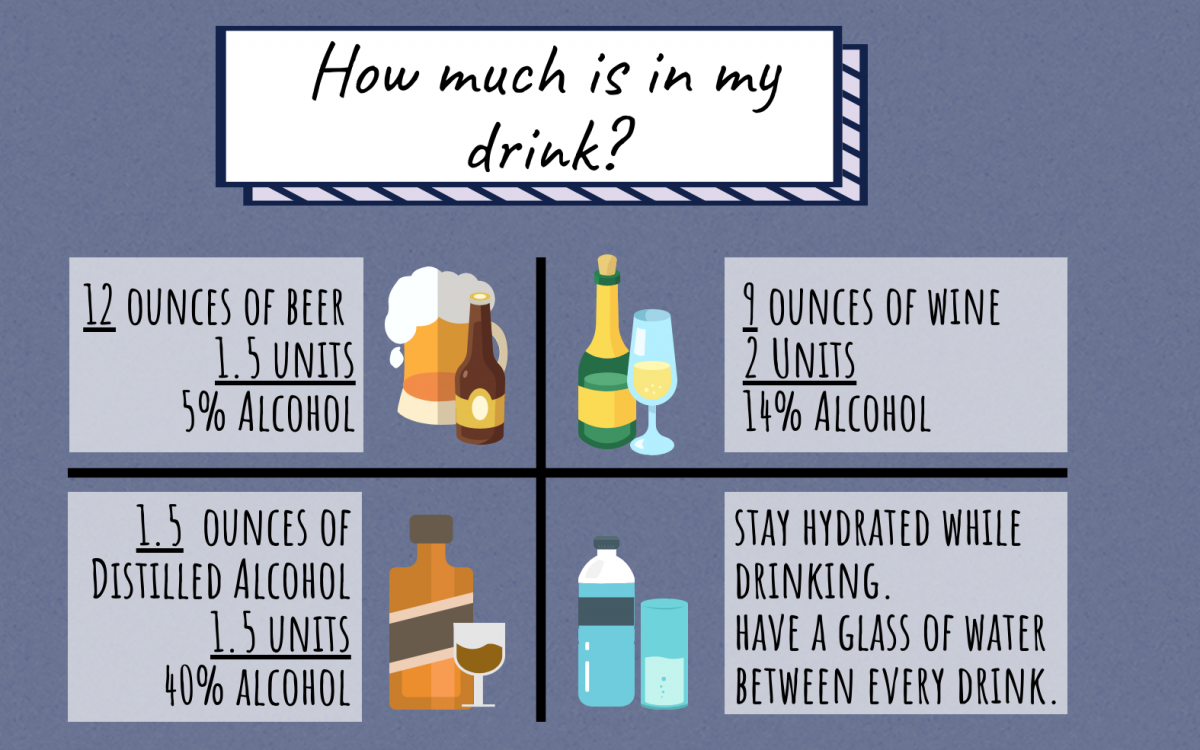Alcohol is a commonly used drug that has long-held legal status in Canada. That’s why most people assume it is safer than other drugs. However, recent studies have shown that alcohol poses more risks to both drinkers and their communities than most illegal drugs combined.

Alcohol causes effects ranging from relaxation, to changes in mood. At higher doses it causes slurred speech, drowsiness, nausea, and vomiting. In cases of extremely high doses it can cause coma or death.
A study done by the Canadian Center on Substance Use and Addiction shows that post-secondary students are particularly likely to develop instances of heavy episodic drinking, otherwise known as binge drinking.
Chris, a member of Alcoholics Anonymous who did not want to give a last name, says addiction can start even earlier. “It’s not only a college thing… people of all ages are affected. The youngest person at an AA meeting that I’ve seen is 11 years old,” he said.
The University of Victoria’s Center for Addictions Research of BC says that any amount of drinking has related harms. Even moderate users are risking chronic diseases like breast, liver, and throat cancer among others. Alcohol also causes issues such as liver failure, heart problems, and brain damage. The best way to prevent health issues from alcohol use is to not drink every day. But of course not drinking any alcohol is the best way to avoid health problems.
Changing perception of the dangers of alcohol use, though, is difficult. For example, despite extensive campaigns, drunk driving is still a problem in Halton Region. Halton Police arrested 36 people for drunk driving in the last five weeks. This translates to one drunk driver arrested in Halton region almost every day since mid-August.

Alcohol is known to be addictive and cause physical and mental cravings. Alcohol interacts with the gamma-aminobutyric acid or GABA receptors. When alcohol is consumed, receptors in the brain cause a similar reaction to using opioids.
Alcoholics Anonymous is one of many organizations trying to help those who suffer from alcohol addiction.
“We are a group of people that are predisposed to have this affliction. I guess you could say it’s genetic. I prefer to say it’s part of our DNA,” said Chris.
“It’s really an individual thing,” he added. “When I was in college all my friends drank a lot, but when they graduated, their use kind of slowed down, mine went up.”
Sheridan College’s Student Union sells alcohol to students at the school pub. The Marquee is only open from 11 a.m. to 6 p.m. Monday to Friday. This means that students can only buy drinks during the day, and not on evenings or weekends.

Alcohol use is projected to grow 17 per cent worldwide by the year 2030, even though the risks of drinking have been known for years. This means that despite the evidence of its harms, alcohol will likely continue to be a popular, and often over-used, recreational drug.

